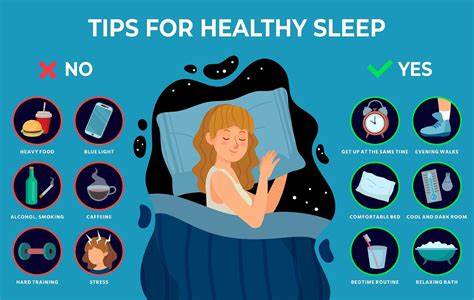In today’s fast-paced world, where everything seems to be moving at the speed of light, the significance of sleep often gets overlooked. We, as a society, tend to prioritize work, social engagements, and various forms of entertainment over the one activity that can truly rejuvenate our bodies and minds – sleep. In this comprehensive article, we delve into the profound impact that sleep has on our overall health and well-being. From physical restoration to cognitive function, sleep plays an irreplaceable role that extends far beyond mere rest.
Understanding the Basics of Sleep
Before we unravel the intricate relationship between sleep and our health, it’s essential to understand the basic mechanics of sleep. Sleep is not a passive state; rather, it’s a dynamic process that involves different stages, each serving a unique purpose. The two primary sleep categories are Rapid Eye Movement (REM) sleep and Non-Rapid Eye Movement (NREM) sleep. NREM sleep further comprises three stages, each contributing differently to our restorative process.
Physical Restoration during Sleep
During sleep, our bodies undergo a series of reparative processes that are crucial for maintaining optimal physical health. One of the most notable processes is tissue repair and growth. The body releases growth hormones during deep sleep, aiding in the mending of damaged tissues and the building of muscle mass. This is particularly important for athletes or individuals engaged in regular physical activities.
Moreover, sleep is intricately linked to immune function. A well-rested body boasts a robust immune system, better equipped to ward off infections and illnesses. Research has shown that sleep deprivation can lead to a decrease in immune cells, making the body more susceptible to various diseases.
Cognitive Functions and Sleep
While the physical benefits of sleep are evident, its impact on cognitive functions is equally profound. Adequate sleep is vital for memory consolidation and learning. During REM sleep, the brain processes and stores information gathered throughout the day, strengthening neural connections and enhancing overall cognitive performance.
Lack of sleep, on the other hand, impairs cognitive functions such as decision-making, problem-solving, and creativity. Sleep deprivation hampers the brain’s ability to focus and process information effectively, leading to reduced productivity and an increased likelihood of errors.
The Hormonal Balance
Sleep plays a pivotal role in maintaining hormonal balance within the body. Hormones govern various bodily functions, from metabolism to stress response. One such hormone is cortisol, often referred to as the “stress hormone.” Adequate sleep helps regulate cortisol levels, preventing an excessive production that can lead to heightened stress and anxiety levels.
Conversely, sleep deficiency disrupts hormonal equilibrium. It can lead to imbalances in hunger-regulating hormones, potentially causing overeating and weight gain. Moreover, sleep-deprived individuals often experience fluctuations in insulin sensitivity, increasing the risk of type 2 diabetes.
Prioritizing Sleep in a Busy World
Incorporating healthy sleep habits into our lives can be challenging, given the demands of modern life. However, recognizing the pivotal role of sleep in our overall health can motivate us to make positive changes. Here are some tips to prioritize sleep:
1. Create a Consistent Sleep Schedule
Maintaining a regular sleep schedule helps regulate your body’s internal clock, making it easier to fall asleep and wake up naturally.
2. Design a Relaxing Bedtime Routine
Engage in calming activities before bed, such as reading, meditating, or taking a warm bath. This signals your body that it’s time to wind down.
3. Optimize Your Sleep Environment
Ensure that your sleep environment is conducive to rest. Keep your bedroom dark, quiet, and at a comfortable temperature.
4. Limit Screen Time before Bed
The blue light emitted by screens can interfere with your body’s production of melatonin, a hormone that promotes sleep.
5. Watch Your Diet and Caffeine Intake
Avoid heavy meals and caffeine close to bedtime, as they can disrupt your sleep.


